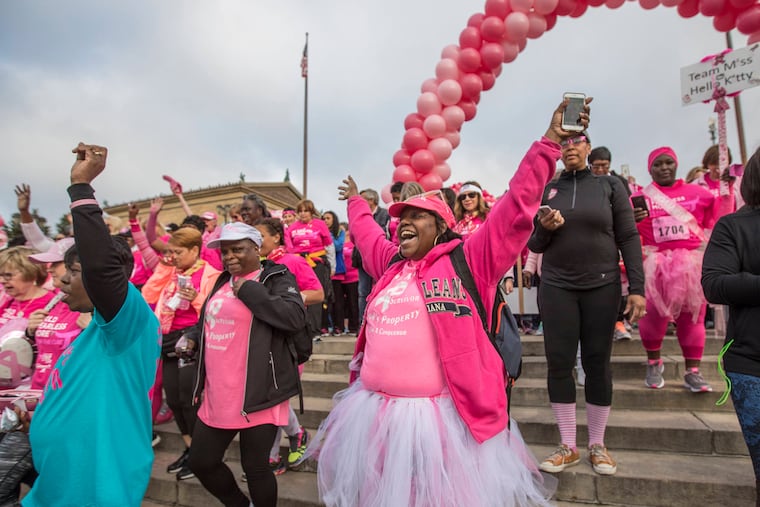Susan G. Komen’s Philadelphia chapter is closing as the once-iconic breast cancer charity shrinks
A pioneer of the breast cancer advocacy movement is downsizing and creating a remote workforce.

Elaine Grobman recalls a time when breast cancer was stigmatized and talking about it was taboo.
“We’ve come a long way, baby,” said Grobman, chief executive of the Philadelphia affiliate of Susan B. Komen, the nation’s largest and best-funded breast cancer philanthropy.
Nonetheless, Komen has announced that the 38-year-old organization is closing all of its regional affiliates, including Pittsburgh and Philadelphia, as it strives to cut costs, change with the times, and cope with the pandemic. Komen will even shutter its Dallas headquarters, and its “consolidated” workforce will be “completely remote.”
“Any reports or rumors of Komen’s closing are untrue. We are evolving, as we should, to ensure we are there for the breast cancer community for years to come,” Paula Schneider, Komen’s president and CEO, said in a statement.
Grobman tried to echo that hopefulness in a blog post, saying “the mission is stronger than ever.” But when asked what Komen services and events will continue in Philadelphia after her staff of six is laid off, she said, “I can’t answer that."
The evolution, if not the end, of the era of Komen-style breast cancer activism has been coming for years.
Komen was founded in 1982 by Nancy Brinker after her sister, Susan G. Komen, died of the disease. The pioneering nonprofit invented two iconic, trademarked marketing tools — the pink ribbon and the Race for the Cure. In recent years, however, the philanthropy has been criticized for stressing marketing over mission and for creating an overly upbeat, commercialized crusade that patients with metastatic cancer can’t relate to. Even though Komen’s cumulative grants to scientists total nearly $1 billion, it has been faulted for spending less than a third of its annual budget on research.
In 2019, as revenues declined and expenses grew, Komen announced it was replacing the Race for the Cure — a nationwide Mother’s Day tradition that attracted hundreds of thousands of pink-clad racers and walkers — with the More than Pink Walk.
In Philadelphia, where many Race for the Cure attendees had stopped bothering to register or donate in recent years, the More than Pink Walk used bike-rack barriers and security guards to restrict the event to participants who had paid the registration fee.
This year, the pandemic forced a “virtual” version of the More than Pink Walk, with designated walkers in 15 counties posting on Instagram and other social media, Grobman said.
“We still raised $500,000,” she said.
Sean Tuffnell, Komen national’s public relations director, said the closing of affiliates does not mean Komen is abandoning communities.
“We fully intend to have people living and working in Philadelphia and across the country,” he said. “We fully intend to continue our walks and races.”
The organization’s focus, however, will shift to “patient assistance" — helping needy women with the costs of breast cancer treatment and related expenses. Philadelphia’s affiliate had already made that shift, Grobman said.
Change — and contention — have always been part of the breast cancer movement. In 2000, for example, Grobman was executive director of Philadelphia’s respected Breast Health Institute, which had for many years run the local Race for the Cure. Komen announced that it was creating its own Philadelphia affiliate, which would be headed — to the institute’s surprise — by Grobman. Lawsuits ensued.
Now an octogenarian, Grobman said she is leaving Komen, but not retiring.
“I’m not done," she said. “I’m an activist.”